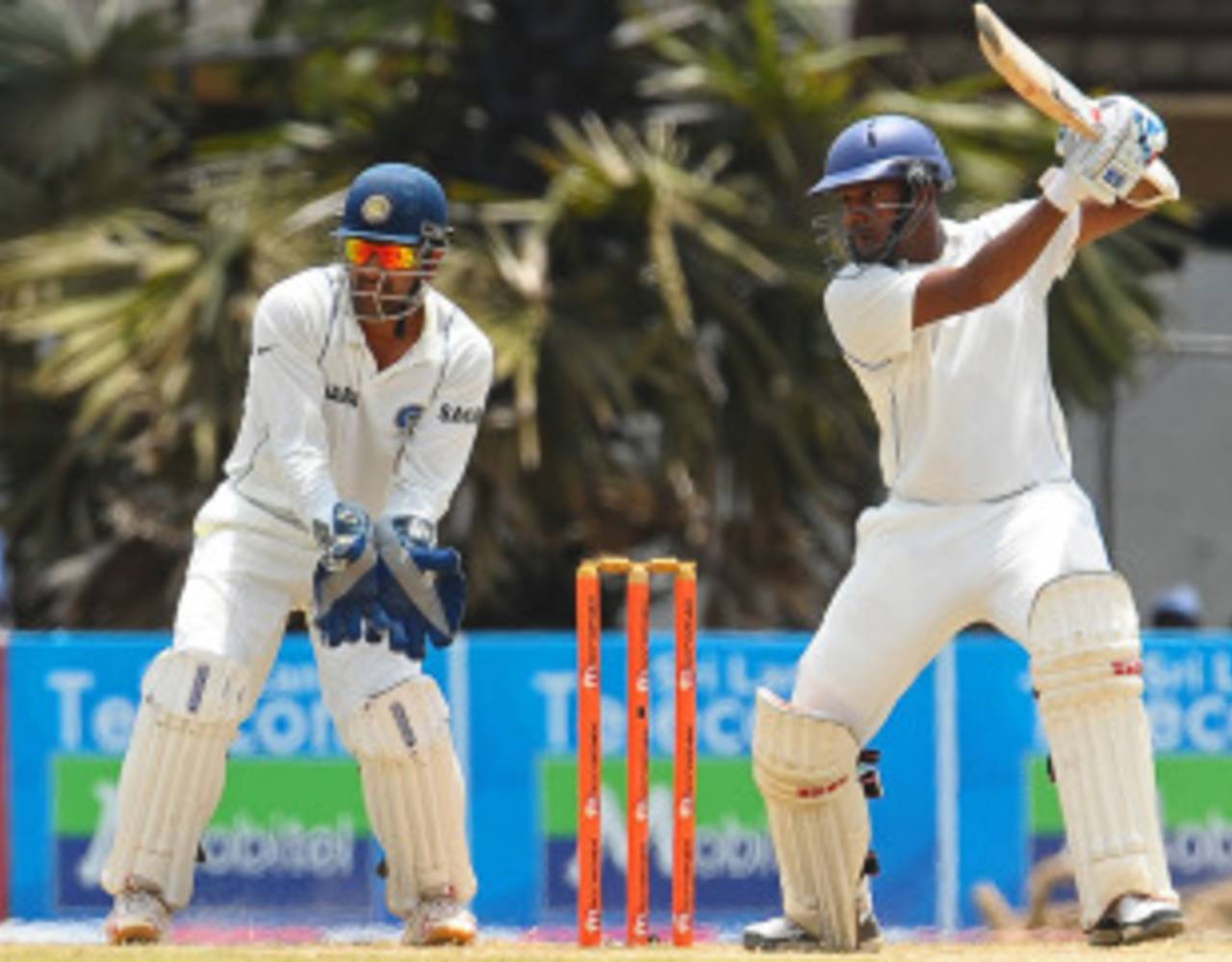This has to be the most annoying bit about modern captains. The moment a tailender and a proper batsman start batting together, they start giving the specialist batsman free singles. No matter the situation, no matter how treacherous the pitch might be, no matter what score that proper batsman might be batting on. Some sort of textbook, which must be burnt if it exists, tells them to attack only the tailender, and not try for the batsman's wicket. They blindly follow.
MS Dhoni is not the first man to do so. He won't be the last. Look at the situation, though. Sri Lanka had been on a self-destruction mission. India had accepted gifted wickets. Five batsmen had been dismissed for 24 runs. The score read 87 for 7, effectively 76 for 7. Thilan Samaraweera was 4 when Lasith Malinga joined him.
One boundary later, Samaraweera was taking an easy single to sweeper cover. On this pitch, with that score. Another hit over mid off and the field was spread irrevocably, and he was given easy singles for the rest of his stay.
It is funny how India would have continued attacking Samaraweera had he been batting with Angelo Mathews, but not now, when his partner was Malinga. Now India were happy to attempt a wicket only about twice an over, letting Samaraweera refuse singles for the first three balls and then turn the strike over, or go for the boundary when the field was brought up to keep him at that end. Why not try the same tactics that have brought success so far?
There is a chance that the proper batsman - with not much to lose, once the tail is in - might go for and succeed in getting quick runs, but he has to take risks for that. Modern captains, though, are worried about not conceding those runs. With the formats of the game, the hearts of the captains are shrinking too.
Mohammad Yousuf was not a good captain, and what he did at the SCG last year is indicative of a modern captain. Pakistan had Australia effectively 51 for 8 in the third innings, having taken the last five wickets for 40 runs, but they stopped trying for Michael Hussey's wicket. "I think you get what you deserve in life, and from the moment Pakistan came out on the last morning and put their field back, they were in trouble," Ian Chappell said of that match. "I thought to myself, when you tell the opposition that you are worried, you are nervous, you are frightened, and particularly when that opposition is a good cricket team, then you are in trouble."
Then at least Hussey had scored 59 runs, here Samaraweera was on 4. India deserved the stiff chase they got, and from the moment they set their fields back for Samaraweera, they were in trouble. He was allowed to get himself in easily, he knew he could defend without worrying about edges, because there wouldn't be anybody to accept them. He knew India were worried.
It becomes like a game of basketball, where there is no full-court press. All the action is concentrated at either end of the court, in the middle players move freely with the ball. Spare a thought, too, for the bowler, who gets only a couple of deliveries in an over - if he is lucky - to try and get the wicket. The bouncer tends to fly off target, the sucker ball tends to become too full, there is no time to work on a dismissal, and more often than not the batsmen come out the better in that contest.
This is not to devalue the contributions of Samaraweera and Ajantha Mendis, who were outstanding. Perhaps they might still have had a century partnership. India still might go on and win the Test, although that looks slightly unlikely. However, a day after India's tail tried to exorcise some of the old memories of opposition lower-order contributions running away with the game, another horror chapter has been added. And the worst part was, Dhoni, like his contemporary captains, tried to get only one batsman out.
Sidharth Monga is a staff writer at Cricinfo
